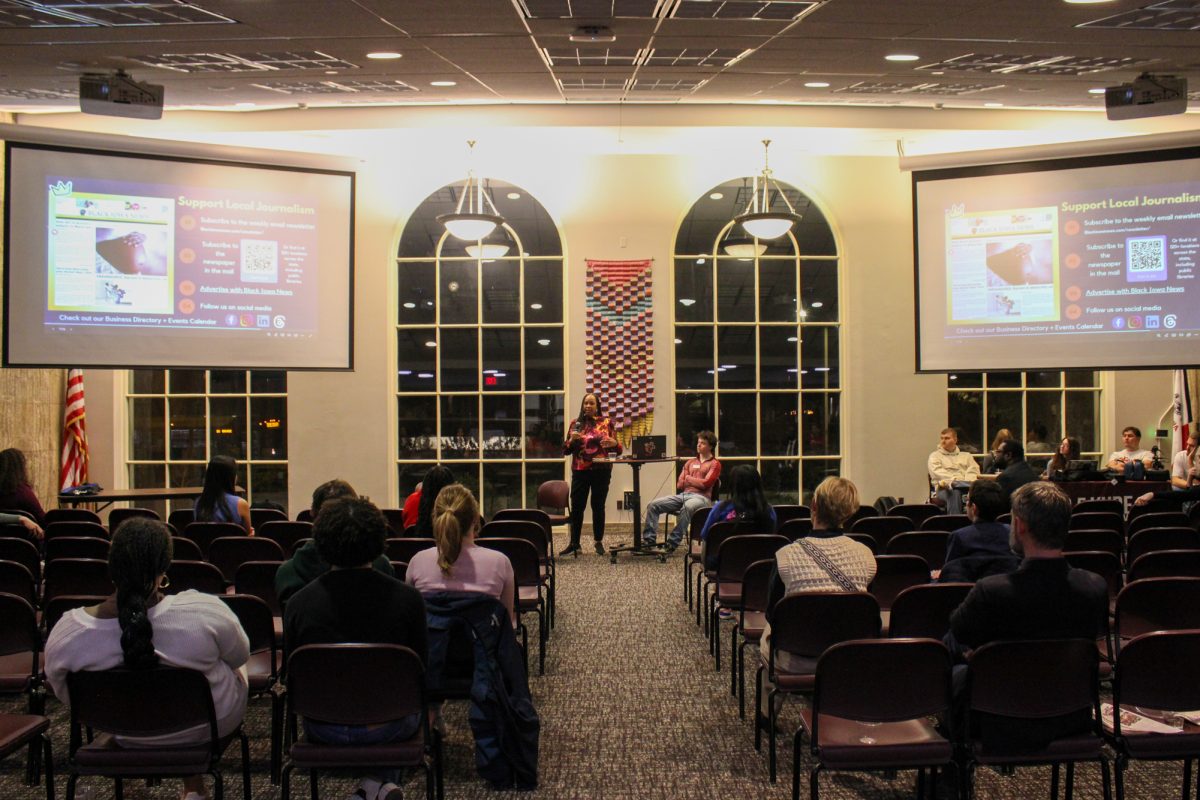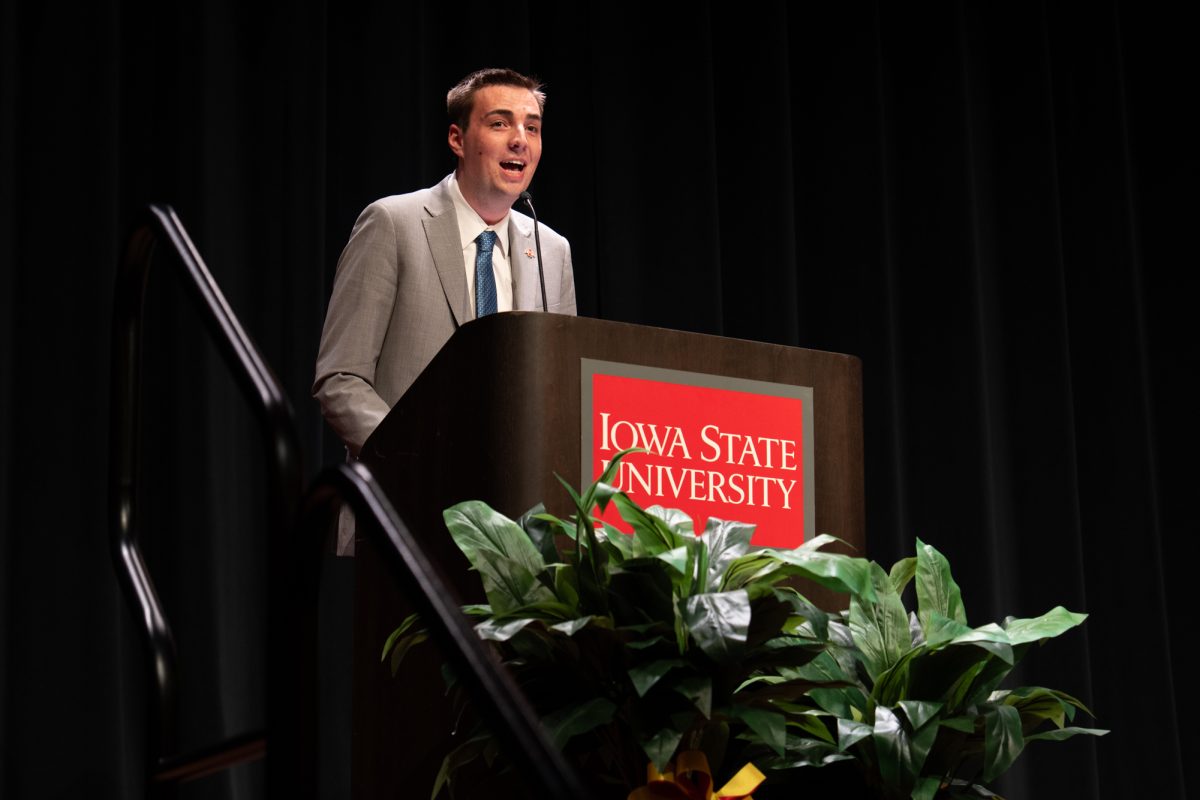At the protest calling for the dismissal of an Iowa State University Police Department (ISUPD) officer, one of the demands protesters listed was participation in a diversion program. A diversion or alternative resolution program has been in place at the university since 2020 for drug and alcohol violations and since 2022 for academic violations.
Diversion or alternative resolutions are offered to low-level and nonviolent offenders as a way to avoid severe legal consequences. Instead of facing jail time, offenders who participate in the program will meet with licensed professionals who aid them in analyzing their behavior and encourage them to make changes moving forward.
Two alternative resolution programs exist in Ames, both with Iowa State and Story County. Both programs aim to educate before punishment, giving first-time and low-level offenders a new chance to undo their wrongs and start a new path forward without facing severe legal consequences.
Student Conduct
The Office of Student Conduct offers two types of alternative resolution programs. One of the programs is for minor alcohol and drug violations. The other is for minor academic misconduct. Students with lower-level violations who have yet to go through the program are eligible to participate. The program is voluntary, and students who are referred have the option not to participate. Those who wish to refrain from participating will undergo the standard student conduct process.
As outlined in the Student Code of Conduct, section 3.7, the Office of Student Conduct can charge violations that occur both on and off campus. This includes any property that is controlled by and adjacent to the university or is closely associated with university-sponsored events or activities.
Students who choose to complete the program will go through a pre- and post-assessment and comprehensive educational program. Within this program, the offender meets with trained student staff twice for coaching, whether that be for drug and alcohol violations or academic violations. Once successfully completed, no record will be reported to the university. There are currently five graduate student coaches who work with students through the program.
Few other universities and institutions have an alternative resolution program similar to Iowa State.
“The alternative resolution process for academic integrity was developed with consideration for the Integrity Mentorship Program at the University of California, San Diego, a much more comprehensive system that has used integrity mentors for more than a decade, though their program does not serve as a diversion program,” said Office of Student Conduct director Sara Kellogg.
The ultimate goal of the program is for students to change their behavior to avoid additional consequences and go on to complete their degree programs successfully. There can be long-term implications for having a conduct violation on a student’s record. It can impact their graduate school applications as well as future job opportunities.
“This may be the only opportunity to engage with some of our students about Iowa State resources and support,” Kellogg said. “Offering a less punitive intervention that informs and serves as a resource in an attempt to prevent future detrimental decisions seemed a positive approach to take for lower-level misconduct.”
Students who complete this program are protected under the Family Educational Rights and Privacy Act (FERPA) and the Health Insurance Portability and Accountability Act of 1996 (HIPAA). Their information remains confidential. Anything said during the well-being coaching meetings stays between the graduate student coach and the student going through the program.
“I really love that the program gives students a chance to, in a very non-confrontational way, look at what substance use has done for them,” said Ryan Doyle, health strategy specialist for substance use prevention, education and recovery.
In 2022-2023, 67% of academic integrity referrals were deemed eligible and opted into the alternative resolution process. For the same year, 39% of alcohol and drug violation referrals were eligible and opted into the alternative resolution process, according to Kellogg.
After completing the alternative resolution program for academic integrity, 100% of students reported they had identified/developed strategies to use in order to avoid future similar violations.
In total, 58% of all students engaged in the student conduct process identified strategies to avoid similar violations.
In 2022-2023, there was a 6% reoffending rate for student conduct referrals.
Story County program
Story County’s pre- and post-arrest diversion program started in 2020 when the program received a comprehensive opioid abuse program grant. Quickly, leadership realized it was not solely opiates that community members were struggling with, program coordinator Shelby Gibson said; it was other substances as well. Now, it is referred to as the comprehensive opioid, stimulant and substance use program.
Pre-arrest referrals and post-arrest referrals differ. With pre-arrest, a person typically either refers themselves or has an officer or community member refer them. They could be struggling with mental illness as well, but they are deemed to be at risk of becoming involved with the criminal justice system.
The other aspect of the pre-arrest diversion is when the individual could be eligible for charges, and the officer has the discretion to refer them to the program if they are low-level, nonviolent misdemeanor chargers. In lieu of arrest, the individual is referred to the program.
Post-arrest diversion occurs when an officer has decided to make the charge, which can be for public intoxication, possession of a controlled substance or any other qualifying charge. The significant difference is that the prosecution would be the one making the referral, and there is an agreement between the attorneys and the defendant to work the program.
The program involves a substance use evaluation, and if the individual is determined to need treatment, they will complete four sessions with a licensed professional.
If one does not complete the program successfully, no additional charges are added to the individual’s case. They would simply move forward as if they had not been referred to the program.
The violations eligible for the program include disorderly conduct, interference with official acts, possession of controlled substance, first and second offense, possession of paraphernalia, first and second offense and trespassing, first and second offense.
“Once a person enters the criminal justice system, they’re 75% more likely to enter it again at one point in their life,” Gibson said.
Of those who complete the program, 12% offend again. Of those who choose not to complete the program, 45% of them have a new charge in the future, according to Gibson’s findings.
Gibson said she works with several surrounding jurisdictions but has yet to build an official relationship with the Iowa State University Police Department. Gibson said 92% of people who come through the program are 24 years or younger, leading Gibson to believe that the majority of the offenders might be students.
ISUPD leadership is currently in the process of meeting with leadership from the Story County program to discuss plans moving forward for building a relationship with the county program, according to both ISUPD leadership and Gibson.
“I think when you offer diversion programs and case management in the community, you’re taking a huge load off that shouldn’t have even been put on their shoulders and really placing it where it should be, with people that specialize in those things,” Gibson said. “I think this is how you really, truly make changes in the community.”














